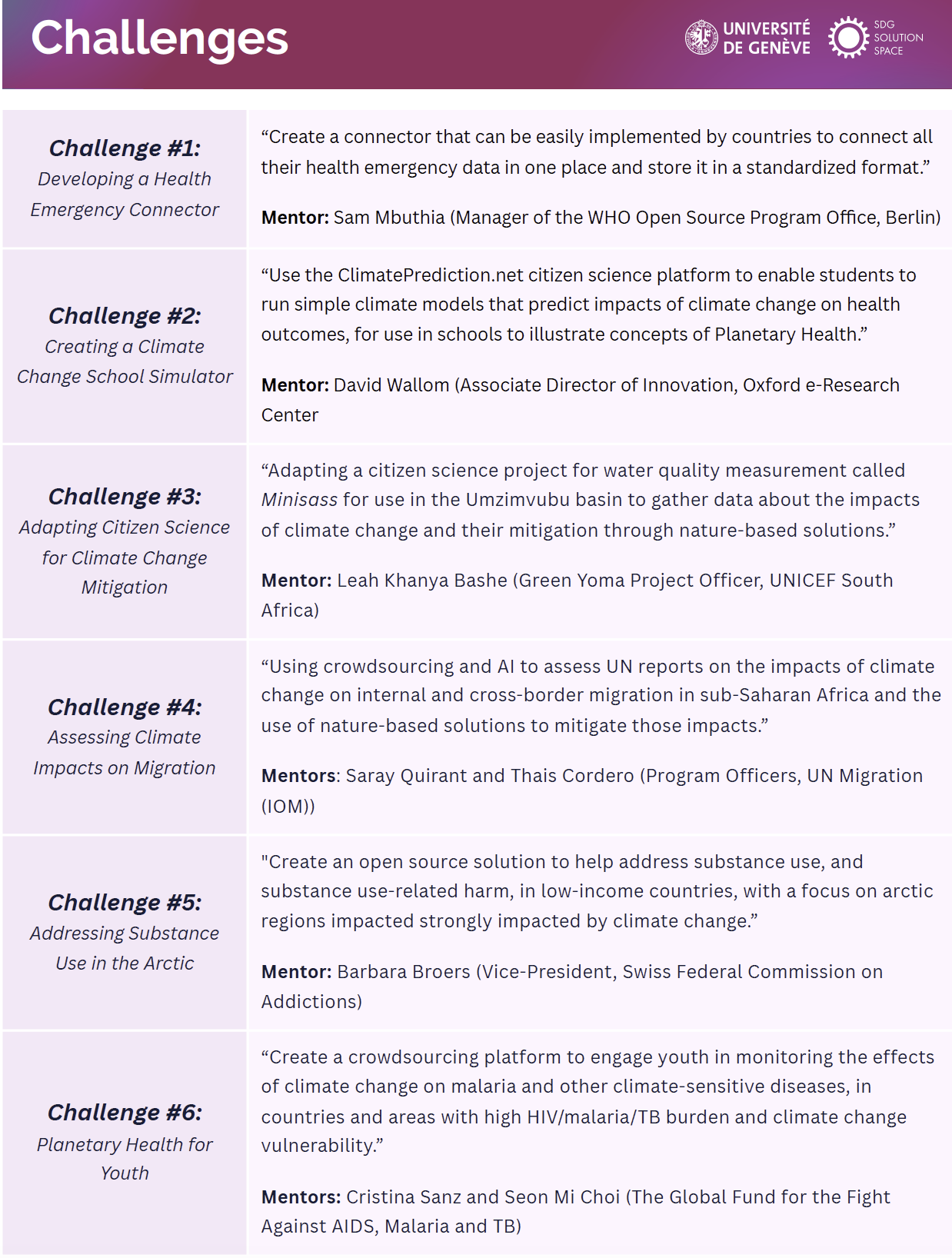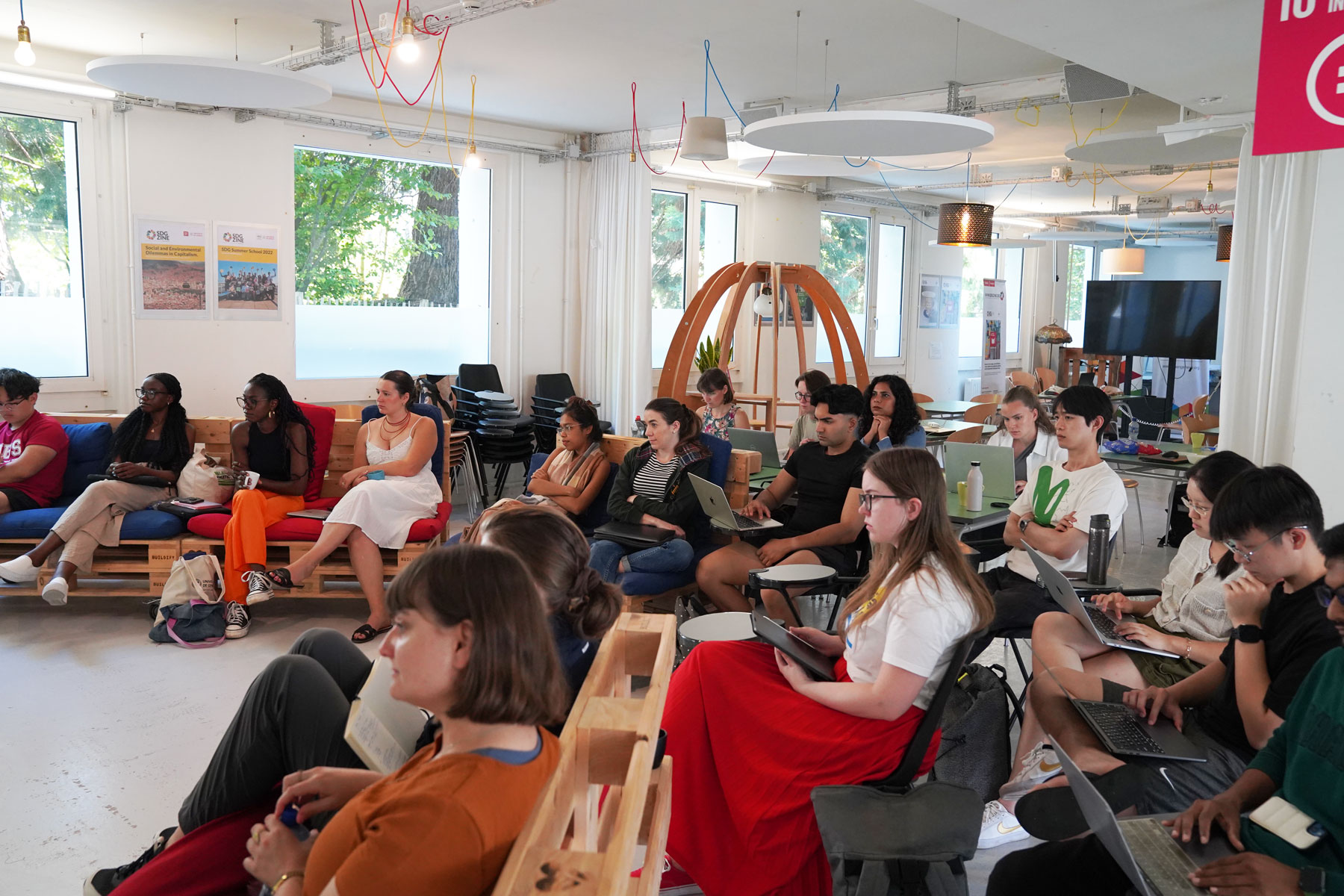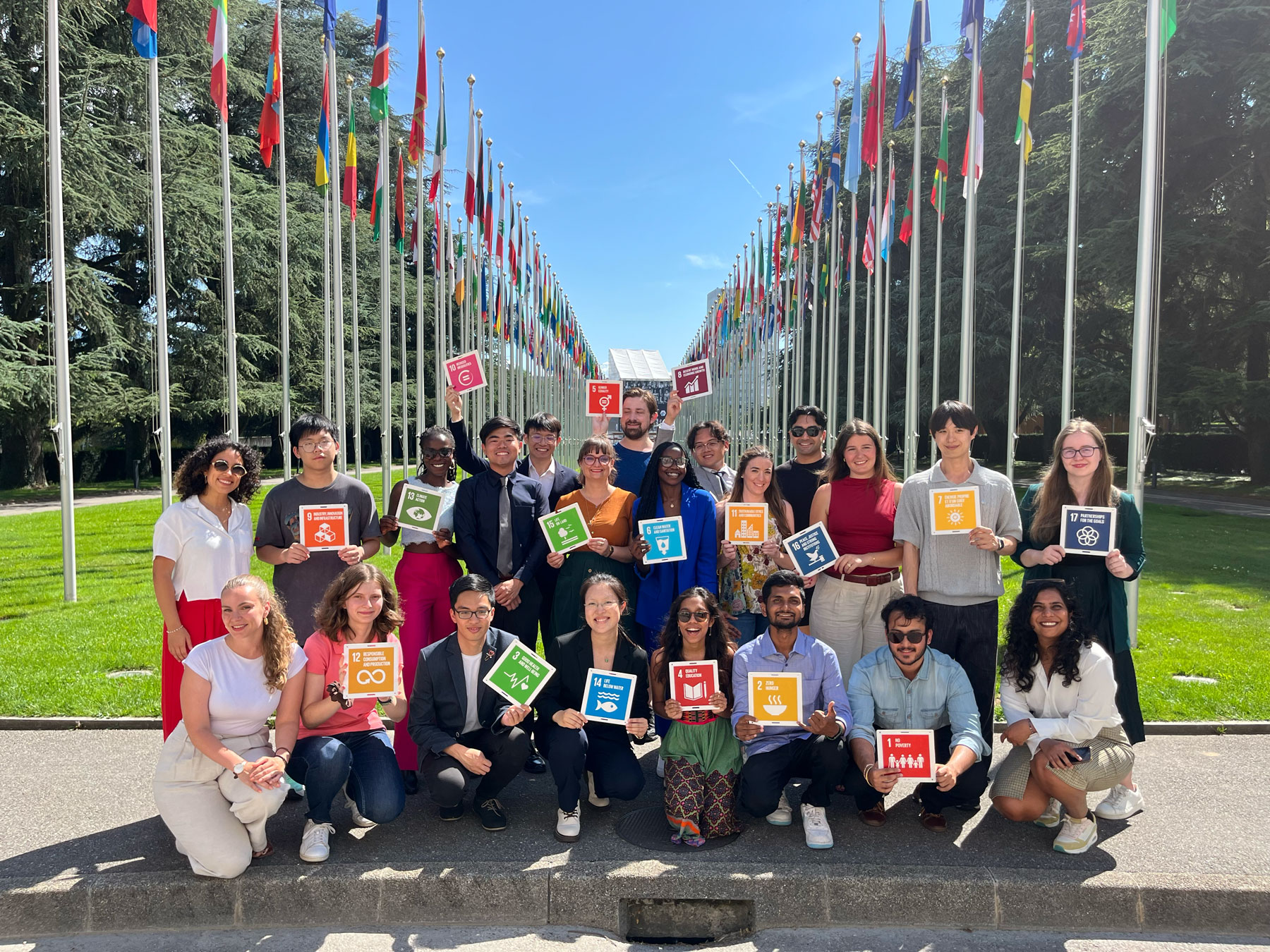The SDG Summer School 2024 is over – a review
The SDG Summer School 2024 just came to an end at the SDG Solution Space in Geneva, at the core of the UN headquarters. The unique experience, central to the SDG Olympiad, dove 19 international students into four weeks of deep immersion on sustainable development, social innovation, Citizen Science and open technologies.
Author: Rosy Mondardini
SDG Olympiad
The SDG Olympiad is a global competition that empowers youth around the world to tackle environmental and health challenges related to the UN SDGs. In close collaboration with International Organizations in Geneva, teams of university students (Bachelor, Master, and PhD levels from any field and nationality) conceive ways to use open data, crowdsourcing technologies, and low-cost open-source solutions to achieve concrete steps towards the SDGs, at a local, regional or global level.
In practice, the SDG Olympiad is structured as an annual cycle. At start, field experts from international organizations and academia propose concrete challenges to the global youth, who are invited to pitch their solutions. After selection, young aspiring innovators join an SDG Summer School, where they are organized in teams and develop functional prototypes of their best ideas, while growing their teamwork skills and entrepreneurial confidence. Several SDG Summer Schools are hosted in a network of partner universities around the world and involve regular prototyping sprints, with pitches to expert mentors whose feedback is built into the next sprint. Each host university establishes a local jury to evaluate the best team based on agreed criteria such as novelty, relevance, feasibility, prototype development, and presentation skills. After the schools, the most promising projects in each partner university are invited to an SDG Olympiad event, where they are introduced to potential investors and partners, and prepare for a deployment phase of their solution.
2024 edition
With the overarching theme “Planetary Health”, the 2024 SDG Olympiad was launched in May at the International Telecommunication Union (ITU) during the Geneva Trialogue, an international event focused on leveraging artificial intelligence and education to address global challenges, emphasizing youth-driven solutions. Planetary Health covers everything from human health challenges, such as treating infectious diseases, to climate resilience and adaptation challenges facing vulnerable communities.
Eleven universities from around the world hosted their own 2024 SDG Summer School: University of Geneva, Asian Institute of Technology, Imperial College London, Kwame Nkrumah University of Science and Technology, Politecnico di Milano, Tsinghua University, United States International University (Nairobi), Université Paris Cité, University of Copenhagen, University of Lagos, Rice University.
With slightly different formats and duration, each school was free to choose an area of interest, as long as it connected to the overall theme. For example, Politecnico di Milano (hosting a school for Idea League students, including ETH Zurich) explored the “synergy between sports, health and technological innovations”.
Switzerland
In Switzerland, students were invited to join the school hosted by the University of Geneva. Geneva offers a unique space for understanding the different dimensions involved in the SDGs and provides an exceptional diversity of experts and mentors from the UN, International Organizations and other Geneva-based organizations. Run since 2016, the SDG Summer School at University of Geneva is at the origin of the SDG Olympiad, involving an increasing network of collaborators and partners. This year, the school was supported by the University of Zurich, 4EU+, Canton of Geneva, EU Albatross, Swiss Confederation, ThinkSwiss, Foundation Botnar, and ITU Generation Unlimited.
Based at the SDG Solution Space, an open innovation and education space located in the heart of International Geneva, 19 students from ten different countries joined forces to tackle thought-provoking challenges offered by the Global Fund, WHO & EU Albatross project, which also provided mentors to the teams. Among others, challenges included “Addressing Substance Use in low-income countries with a focus on arctic regions strongly impacted by climate change”, “Create a crowdsourcing platform to engage youth in monitoring the effects of climate change on malaria”, “Using crowdsourcing and AI to assess the use of nature-based solutions to mitigate the impact of climate change on internal and cross-border migration”, and more.

Format
Overall, the SDG Summer School program is designed to help participants take a project from idea to implementation and to scale. It is a hands-on, learning and mentoring schedule that provides participants with context about the challenge and knowledges/experience with existing (open) tools that help to transform ideas into viable projects. In dedicated sessions, students interact with many stakeholders from both the public and private sectors, civil society and academia. Between sessions, the teams advance with their projects and experience one-on-one coaching to help integrate experts’ feedback in their solutions.
At the end of the SDG Summer School, ideally students have a:
- Clear understanding of the problem they are trying to solve and its underlying causes;
- Compelling theory of change and a solution narrowly tailored to fit the problem;
- Strategy to engage with people and data; • Prototype of their solution and the roadmap to user-test it;
- Clear and persuading pitch of their project.
This year’s SDG Olympiad offered two ways to reward participants, the Global Prize and the Special Awards. Special Awards were granted locally by each host university based on its focus and available resources, to recognize projects that didn’t reach the final stage. Special Awards categories included for example “Best use of Open-source generative AI”, “Best contribution to nature-based solutions for Climate resilience”, and more.
At the global level, winners from each summer school will compete for bronze, silver, and gold medals at the 2024 SDG Olympiad Award Ceremony in Paris, based on four of pre-determined and publicly announced criteria:
- potential to produce SDG-relevant data;
- potential to generate social impact;
- appropriate use of open-source technologies;
- appropriate use of participatory technologies.
Projects
During the one-month school in Geneva, six teams worked in close collaboration with mentors and international experts, combining seminars with site visits to international organizations and team-based work.
The teams came out with ambitious solutions that included, for example, a chatbot powered by AI and based on official documents to provide an evidence-based summarization tool on existing nature-based solutions for climate displacement, and an initiative fostering a trusted and anonymous support network to collect data and monitor drug use and quality data (mentors included the Government of the Northwest Territories and Cabin Radio).
The project selected to represent the Geneva SDG Summer School at the global award ceremony is the one working on the challenge 2, Creating a Climate Change School Simulator. Working in collaboration with Oxford University’s ClimatePrediction.net project, the team of 3 students – a B.Sc student form Seoul, a M.Sc from Copenhagen, and a PhD from Cape Town – found an easy way for schools to run their own climate models, getting students engaged in climate impact predictions. Climateprediction.net is the world’s largest climate modelling experiment, a “volunteer computing” Citizen Science project that runs climate models on people’s home computers to help answer questions about how climate change is affecting the world, now and in the future.
What’s next
After the awarding local prizes, each host university has now selected the most promising team to represent them at the global SDG Olympiad Award Ceremony in Paris on 25-26 September, just after the 2024 Paralympic. At the Ceremony, an international jury representing key partners and sponsors will the assign the Global Prizes. Global Prize winners will gain exposure to a global network and potential support from an incubator program in their region for their solutions. Stay tuned to know the final winners!

